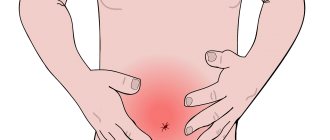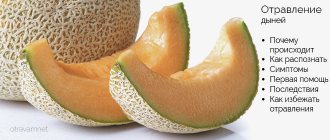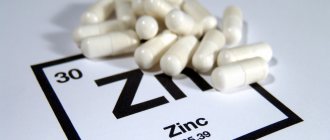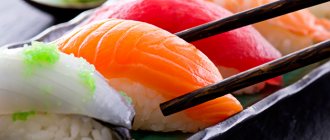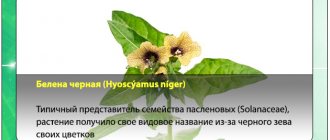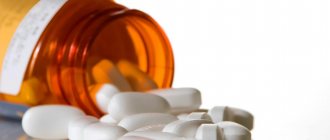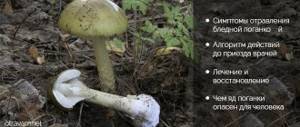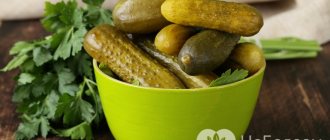Good afternoon, many will be interested in understanding their health and their loved ones, and I will tell you my experience, and we will talk about whether it is possible to get poisoned by bananas. Most likely, some details may differ, as was the case with you. Please note that you should always consult with highly specialized specialists and not self-medicate. Naturally, you can quickly find the answer to the simplest questions and diagnose yourself. Write your questions/suggestions in the comments, and together we will improve and supplement the quality of the material provided.
- Accumulation of starch in the stomach and intestines. This substance is not completely dissolved in digestive fluids, which is why it accumulates in the body.
- Excess phosphates and nitrates in bananas. This process is determined by its processing for longer storage or the abuse of mineral fertilizers during fruit growing.
- Eating spoiled bananas in cases where they have begun to rot, i.e. pathogenic organisms have penetrated into the fruit through their skin;
- Violation of storage rules, for example, in the same room with meat or dairy products, or in heat and bright sunlight.
Symptoms
A few hours after eating fruit, patients begin to complain:
- for the appearance of abdominal discomfort (pain, bloating, heaviness);
- for nausea, banana burps, hiccups, heartburn;
- for attacks of weakness, trembling in the limbs, sweating.
Objectively detected: rumbling, increased abdominal volume, vomiting, diarrhea. In mild cases, there is nausea and moderate pain in the epigastrium and intestines, while maintaining a normal general condition.
With an average, moderate-severe course, patients weaken, their body temperature rises (37.5-38.5 degrees), attacks of vomiting and diarrhea intensify, the pulse quickens, blood pressure decreases, and shortness of breath may appear.
In children under one year of age, a severe course occurs, associated with severe dehydration of the body, which is manifested by severe disturbances in cardiovascular, respiratory and nervous activity.
If intestinal infections caused by eating low-quality bananas can be determined using special studies, poisoning with phosphates and nitrates is difficult to detect using diagnostic methods. Clinically, in these disorders, in addition to eating dysfunctions, changes can be observed at the level of nervous activity. Excess phosphates cause insomnia and overexcitement in children, while nitrates, on the contrary, cause severe fatigue and constant drowsiness.
Bananas can not only rot, but also become covered with mold (a whitish, yellow or light green coating). Many people believe that if you remove the spoiled skin and eat the fruit, nothing will happen, but this is a mistake; when the fungus appears on the product in a tiny amount, it grows deep inside it, affecting all layers. Mold poisoning is more likely to cause pain and nausea.
Consequences
Everyone knows that any poisoning negatively affects the functioning of the body, and banana poisoning is no exception. In most cases, a person suffers from symptoms of intoxication for a short time, after which the functioning of all organs and systems is completely restored.
However, if the poisoning is very severe, pancreatitis, gastritis, migraine, chronic jaundice, and tachycardia may develop. All these complications are treated after intoxication is eliminated.
Prevention
To avoid banana poisoning, it is recommended to follow a number of simple rules.
- Before eating fruits, they must be washed under running water, even with the peel. This helps wash away some of the chemicals that are used to process bananas for successful transportation.
- If the skin of the fruit is too shiny, it is better to refuse to buy it, since it is clearly treated with biphenyl. This substance penetrates very deeply into the fetus and poses a danger to the human body.
- It is best to buy bananas in stores, not on the street.
Have you ever had banana poisoning?
Treatment of poisoning
Treatment for banana poisoning is usually carried out at home or on an outpatient basis.
To improve the condition, the following groups of drugs are prescribed:
- enzymes – Mezim, Festal, Panzinorm;
- antibiotics – Furazolidone, Intetrix, Ersefuril, Ftalazol;
- antispasmodics – No-shpa, Duspitalin;
- antipyretics – Paracetamol, Ibuprofen;
- pro- and prebiotics – Linex, Enterozermina, Bifidumbacterin.
All of the above drugs can only be used as directed and under the supervision of a doctor, since symptoms of banana poisoning do not always occur due to toxic or food infections. They can mask other pathologies, such as appendicitis, and taking medications without a doctor's examination may prevent them from being diagnosed in a timely manner.
In case of severe poisoning, the patient is sent to a hospital, where he is necessarily prescribed detoxification therapy - solutions of glucose, sodium chloride, dextrose and antibiotic therapy. Treatment helps to quickly remove toxins from the body, restore water and acid-base balance in the body and alleviate the general condition of the patient.
What's so special about bananas?
Why are they so good and how do they differ from other fruits, which, by the way, are not recommended after poisoning, since in most cases they activate fermentation processes that are undesirable at this stage? But the same cannot be said about bananas; on the contrary, they improve and stimulate metabolic processes in the body in general and digestion in particular.
In addition, bananas:
- easy to digest;
- low-allergenic;
- contain starch, which breaks down slowly and leaves a feeling of fullness for a long time, helping not to pass on during the recovery period;
- help remove toxic phenol from cells, so bananas are especially recommended for mushroom poisoning;
- rich in valuable microelements:
- potassium (normalizes heart function and has a beneficial effect on the cardiovascular system),
- zinc (helps maintain normal blood sugar levels),
- iron (regulates optimal blood composition and maintains hemoglobin levels);
Diet
After poisoning, it is useful to use:
Important! In case of poisoning, a child needs to eat often, but in small portions - 7 times a day with an interval of 2.5 hours.
Every day the amount of food will increase slightly and your appetite will improve. The usual diet will return on the 5th day after the illness. To remove all the consequences after the disease, the diet must be followed for several more weeks. Children 6-7 months old can cook milk rice or buckwheat porridge. Dilute the milk halfway with water. If complementary foods have just been introduced, you need to temporarily remove all vegetable purees and feed only milk, then gradually reintroduce the previously introduced foods again. For children 7-8 months old, meat soufflé and vegetable puree are added to the diet. If vaccination is prescribed within two weeks after poisoning, it is necessary to notify the doctor about the past illness. It is also recommended to take a general blood test and urine test a few days before vaccination. The main thing during the recovery period is to remember that the food is low-fat, properly prepared and easily digestible. In case of poisoning, you should never force someone to eat, but you must monitor your fluid intake.
We recommend reading: Magnesia for a hangover: powder and ampoules, how to take it
In case of poisoning, you must adhere to a strict diet that excludes foods that are difficult to digest, as well as some vegetables and fruits. So, the patient is faced with the question: is it possible to eat bananas if poisoned?
Bananas are known for many beneficial properties:
How harmful they are:
- Use is not allowed for diabetes mellitus, thrombophlebitis, symptoms of ischemia,
- Bananas are a high-calorie product, so don’t overeat.
- Unripe fruits contain high levels of starch,
- Excessive consumption may result in constipation, increased gas formation,
- Before eating, it is necessary to wash the peel well to remove chemicals used to increase shelf life,
- It is not recommended to add fruit to the diet of a child under one year old.
Proper consumption of fruits will only bring benefits to the body, but it is not allowed to abuse the product.
At the same time, during rehabilitation therapy the entire diet should consist of dietary dishes.
Beneficial features
Banana is famous for its wide range of beneficial properties:
- Due to its complex chemicals, it is excellently used in the prevention and treatment of inflammation of the oral mucosa and gastrointestinal tract.
- The high concentration of potassium and magnesium in the composition ensures normal functioning of the heart, liver, muscle activity, growth of bone tissue and teeth.
- Contains a lot of sugars and other easily digestible carbohydrates, giving the body energy.
- The pulp of the fruit soothes and coats the mucous membranes of the body, preventing heartburn.
- The substances included in its composition have a strengthening effect on bones and hair, and rejuvenate the skin. Therefore, this southern fruit is often used in cosmetics.
- Positive effect on the nervous system due to the “hormones of joy” included in the composition. Regular consumption of fruits can relieve depression, a person becomes calmer, and his mood improves.
- The high iron content in bananas is beneficial for the hematopoietic system. This slows down the natural aging processes of the entire body, improves brain function, and accelerates wound healing.
Contraindications
Not everyone is allowed bananas. Thus, eating fruits is prohibited for people who have an individual intolerance to them.
In this case, after eating the fruit, a red rash or small spots appear on the skin. They are also contraindicated for people suffering from:
- diabetes mellitus Despite the fact that fruits promote the production of insulin, they contain a large amount of sucrose, which is harmful for this disease;
- stomach ulcer. As a result of eating bananas, a feeling of satiety appears, and a person does not want to eat, because of this, the usual diet may be disrupted;
- varicose veins. Bananas help thicken the blood.
In addition, fruit should not be given to children who have recently suffered poisoning. This can be done only after the doctor's permission.
Treatment
If a person has eaten poisonous bananas, after which poisoning occurs, you need to urgently take the patient to the clinic. Hospitalization is required for children under three years of age. In addition, a medical examination is necessary if symptoms of poisoning last longer than 3 days, and attacks of diarrhea and vomiting occur more than 10 times a day.
The doctor will conduct a medical examination and prescribe treatment. First of all, rehydration therapy is prescribed, which is based on restoring the water and electrolyte balance in the body. It is carried out orally and parenterally - for children. The procedure can also be carried out at home. To do this, the patient drinks a solution of rehydron, lytrozole and other medications. Such medications should be in every first aid kit. They help restore water balance and intestinal microflora.
The doctor also prescribes sorption therapy. The patient drinks enterosorbents, which remove harmful toxins from the body. This treatment is carried out only in the absence of vomiting. It is not recommended for small children and elderly people to use sorbents. If the patient has a high temperature, antipyretic medications are prescribed: ibuprofen or paracetamol.
Particular attention is paid to antiemetic and antidiarrheal therapy. Vomiting and diarrhea from bananas are the most common signs of banana poisoning and can lead to dehydration. The patient takes loperamide, motilium, cerucal and other medications.
In case of food poisoning, the patient is prescribed bed rest. He shouldn't go to work if he feels bad. This may make the condition even worse.
Symptoms of intoxication
Poisoning the body with bananas is characterized by the same symptoms as with any food intoxication. Among them are the following symptoms:
- nausea and vomiting. Banana-tasting burps may also occur;
- diarrhea. The patient begins to diarrhea heavily. If vomiting begins first, constipation may occur instead of diarrhea as a result of dehydration;
- pain and heaviness in the stomach, flatulence and cramps in the intestines;
- general weakness of the body, chills, headaches;
- the appetite deteriorates significantly, the patient is disgusted by the smell of food;
- Heartburn is another sign of banana poisoning.
However, in case of poisoning, not all symptoms may appear. If the intoxication is mild, then only nausea or stomach pain is observed. But in case of severe poisoning, a high temperature is added to the above symptoms, due to which the patient may hallucinate.
In addition, fruit should not be given to children who have recently suffered poisoning. This can be done only after the doctor's permission.
Causes
- Accumulation of starch in the stomach and intestines. This substance is not completely dissolved in digestive fluids, which is why it accumulates in the body.
- Excess phosphates and nitrates in bananas. This process is determined by its processing for longer storage or the abuse of mineral fertilizers during fruit growing.
- Eating spoiled bananas in cases where they have begun to rot, i.e. pathogenic organisms have penetrated into the fruit through their skin;
- Violation of storage rules, for example, in the same room with meat or dairy products, or in heat and bright sunlight.
First aid and treatment
Banana poisoning can be attributed to a wide range of classic food intoxications that are caused by various pathological agents. For moderate and severe forms of the problem, it is better to immediately call an ambulance, and then proceed to primary pre-medical care.
We recommend reading: Hawthorn for blood pressure – does it increase or decrease? Recipes
First aid measures include:
- Gastric lavage . Despite the fact that a banana is quickly absorbed by the body, if more than an hour has passed after consuming a poisoned product, then it is rational to do a gastric lavage. It is necessary to drink about 2 liters of water in one sitting, then artificially induce vomiting and repeat the procedure until clean rinsing water is visible without the presence of food particles;
This is useful to know!
- Sorbents . As a mandatory addition, it is recommended to use available sorbents. This can be activated carbon, Polysorb, Enterosgel or any other product that binds toxins and safely removes them from the stomach. The required dosage should be taken from the instructions for the specific drug;
- Drink plenty of fluids and monitor your condition . If banana poisoning is accompanied by severe vomiting and diarrhea, the person quickly loses a large amount of fluid, which can lead to dehydration. In this situation, after washing and taking enterosorbents, it is necessary to maintain water balance in the body by regularly drinking water in small sips.
An ambulance arriving at the scene of an incident, which includes specialized specialists, will be able to competently assess the condition of the victim and make the necessary decisions about his possible hospitalization in a hospital. Standard medical care usually includes the following procedures:
- Rehydration therapy . It is aimed primarily at restoring the water, salt and electrolyte balance of the body. In the vast majority of cases, parenteral administration of saline, glucose and other necessary drugs is used;
- Support of vital signs . Depending on the severity of the patient’s condition, he is prescribed symptomatic therapy, forced diuresis, hemodialysis, and other medications or other actions aimed at stabilizing vital signs;
- Protection of organs and systems . In severe and super-severe forms of poisoning, a person often develops various complications. To minimize the risks of their development, a wide range of specialized protective drugs can be used, from corticosteroids and antibiotics, to hepatoprotectors and immunomodulators.
After the acute period of intoxication has been eliminated, the next stage of treatment begins , which consists of restoring the body. It includes a strict diet, bed rest, taking vitamin and mineral complexes, physiotherapy, and other measures as necessary, indicated in the individual treatment plan by specialized specialists of the medical institution.
Is it possible to eat bananas if you are poisoned?
A number of nutritionists and other doctors recommend eating bananas for various poisonings. As practice shows, the fruits described above are relatively easy on the gastrointestinal tract and, accordingly, can be included in diets during the rehabilitation period after food intoxication. There is some truth in this statement. However, certain rules for using the fruit in cases of toxic and food poisoning should be taken into account.
You might be interested.
What to do if you are poisoned by chicken: signs of rotten meat First of all, you need to place the main emphasis on choosing really high-quality products . Bananas should be moderately ripe, not green, but not overripe. You can eat no earlier than a few days after receiving poisoning and no more than 1-2 pieces per day; moreover, it is first advisable to subject them to short-term heat treatment, for example baking.
It is also worth considering a number of special restrictions for certain groups of people for whom bananas are contraindicated or can be consumed with great caution.
In addition, in case of poisoning, banana is contraindicated for diabetics, children under 3 years of age, as well as people with a severe form of intoxication in the presence of uncontrollable vomiting and prerequisites for the development of liver or kidney failure.
How do bananas affect the body?
Almost all modern strict diets prescribed after food intoxication involve a complete refusal to eat fresh vegetables and fruits. However, this rule does not apply to bananas, since this fruit can be consumed immediately after the end of the acute period of poisoning. What is so special about the product?
Beneficial properties of banana:
- Easy to digest . This fruit does not have an irritating effect on the gastrointestinal tract, is very easily and quickly absorbed by the body, and also does not contain a large amount of calories;
- Improving intestinal microflora . Modern research shows that regular consumption of bananas helps normalize intestinal microflora and fight dysbiosis of unknown nature;
- Improved peristalsis . This product is an ideal natural remedy for constipation;
- Improving defenses . Individual components of this product help fight bacteria and viruses, and also strengthen the immune system.
Is it possible to eat fruit if you have toxicosis during pregnancy?
Modern nutritionists and gynecologists recommend that women during pregnancy be sure to include bananas in their diet. It is bananas that help fight depression , improve intestinal microflora, fight constipation, strengthen bones, and also relieve heartburn. However, what to do if a representative of the fair sex has toxicosis? Is it possible to eat this fruit in this case?
Modern doctors cannot give an unambiguous answer to this question, since, due to its characteristics, toxicosis can cause various physiological disorders in the body of the expectant mother. So, in a number of women, bananas with toxicosis almost immediately cause nausea and vomiting , while in others the fruits of the plant help to effectively fight the pathology.
Regardless of the circumstances, it is advisable to first try only a quarter or a third of a small fruit, while the fruit itself must be ripe and heat-treated. Carefully monitor your body's reaction. If a banana helped to effectively overcome toxicosis, then continue to eat it and periodically add it to your diet.
Symptoms of banana poisoning
If a banana is so healthy, then how can one become poisoned by this product? There may be several reasons for the onset of the pathological process:
- Too green or overripe fruits . Nutritionists do not recommend eating unripe green or overripe fruits. In the first case, the product contains a large amount of starch that is poorly soluble in the stomach and can cause gas formation and pain. In the second case, pathogenic microorganisms can multiply inside the product, and it also contains too much sugar. The optimal solution would be bananas with a juicy yellow hue, without dark spots, light stripes and other elements;
- Treatment with chemicals . In the process of growing fruit, various pesticides and chemicals can be used to help control pests. A product that is not washed well enough contains the components described above; moreover, they are often present both on the peel and inside the fruit itself. Moreover, a number of manufacturers who send their products on a long voyage across the ocean additionally treat the fruit with phenol for maximum product safety. In the latter case, eating such an exotic fruit, especially in large quantities, can provoke the development of poisoning.
We recommend reading: Tibetan herbal collection for cleansing the body: reviews, cleansing method, recipes
The symptoms of intoxication depend on the specific factor that provoked the development of the problem. In general, the following manifestations may be observed:
- Nausea with vomiting;
- Diarrhea;
- Intestinal spasms, flatulence, pain and heaviness in the stomach;
- Lack of appetite, general weakness, heartburn;
- Other manifestations of intoxication depending on the type of pathological agent that has entered the body.
An ambulance arriving at the scene of an incident, which includes specialized specialists, will be able to competently assess the condition of the victim and make the necessary decisions about his possible hospitalization in a hospital. Standard medical care usually includes the following procedures:
Can bananas give you a stomach ache?
A fairly large number of people who consume the exotic fruits described above complain of stomach pain. How is this symptom formed?
Green bananas are very rich in “heavy” starch and, accordingly, cause increased gas formation, flatulence, and an unpleasant feeling in the stomach. In addition, a negative manifestation is possible in a situation where a person uses overripe fruits.
Another potential pathological factor is the treatment of products with pesticides, phenol and other substances at the stage of growing products. Initially intended for pest control and better preservation of the product, the described components often form the prerequisites for food poisoning, including acute spectrum and pain syndrome.
Gastritis is dangerous because it promotes the formation of erosions and ulcers. In addition to drug treatment, diet is a major factor in recovery. Gastroenterologists favor the inclusion of bananas in medical nutrition. Benefits of the fruit:
To prevent bloating and abdominal discomfort, it is recommended not to mix bananas with food. Ideal to eat an hour before or after a meal. If your stomach has high acidity, eat the fruit half an hour before meals. Banana is the only fruit approved by gastroenterologists for consumption for stomach erosion and ulcers.
Contraindications
It would take a long time to list the beneficial properties of bananas, but we must not forget about the contraindications. Not everyone can eat bananas. They are prohibited for people with individual intolerance, which may be indicated, for example, by an allergic reaction: a red rash and spots on the skin after consuming them. This southern fruit is also contraindicated:
- People with diabetes . There is a large amount of sugar in the composition, which is harmful for this disease.
- For stomach ulcers . For ulcers, a certain diet is recommended; eating bananas can disrupt it due to the feeling of fullness caused by the fruit.
- For varicose veins . Fruits cause blood to thicken. For the same reason, it is prohibited for people who have had a heart attack or cerebral hemorrhage.
- People with a sedentary lifestyle . The product causes bloating and gases, filling the stomach for a long time. Such people do not need to eat fruit on an empty stomach or drink liquid.
- You should not eat it immediately after suffering from poisoning . The gastric mucosa is not yet ready to cope with a heavy load, which can lead to increased vomiting and diarrhea.
- Doctors also do not recommend giving the fruit to children under 3 years of age due to the high risk of allergic reactions.
How do bananas affect the body?
Bananas are a sweet, delicious fruit. Contains many nutrients and essential substances:
Almost all modern strict diets prescribed after food intoxication involve a complete refusal to eat fresh vegetables and fruits. However, this rule does not apply to bananas, since this fruit can be consumed immediately after the end of the acute period of poisoning. What is so special about the product?
- Easy to digest. This fruit does not have an irritating effect on the gastrointestinal tract, is very easily and quickly absorbed by the body, and also does not contain a large amount of calories;
- Improving intestinal microflora. Modern research shows that regular consumption of bananas helps normalize intestinal microflora and fight dysbiosis of unknown nature;
- Improved peristalsis. This product is an ideal natural remedy for constipation;
- Improving defenses. Some components of this product help fight bacteria and viruses, and also strengthen the immune system.
Can bananas give you a stomach ache?
A fairly large number of people who consume the exotic fruits described above complain of stomach pain. How is this symptom formed?
Green bananas are very rich in “heavy” starch and, accordingly, cause increased gas formation, flatulence, and an unpleasant feeling in the stomach. In addition, a negative manifestation is possible in a situation where a person uses overripe fruits.
Another potential pathological factor is the treatment of products with pesticides, phenol and other substances at the stage of growing products. Initially intended for pest control and better preservation of the product, the described components often form the prerequisites for food poisoning, including acute spectrum and pain syndrome.
